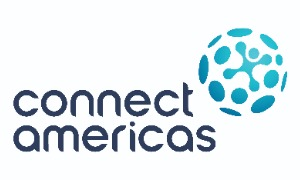Commercial Banks
Most SME (small and medium sized enterprises) owners usually resort to commercial banks for their financial needs. The size varies considerably: some are huge multinationals; others are large but domestic, and there are also small or niche banks.
Multinational Banks
As explained by the Organization for Economic Cooperation and Development (OECD), the private multinational banks comprise the largest group of financial institutions in most countries of the region. Capitalization tends to be greater and they offer extensive banking services. They include trade financing transactions, for example, that are ideal for SMEs seeking to internationalize.
Multinational banks generally enjoy the advantage of being recognized all over the world, something that is very useful when financing trade. According to the Guide to International Trade Center Exporting SMEs, most of these entities "accept bills of exchange and issue letters of credit as well as discounts and negotiate IOUs.”
As the OECD explains, the disadvantage of SMEs regarding large multinational banks is that transactions are subject to strict risk analysis processes and procedures such as credit ranking. In many cases, SMEs lack adequate financial history to be included on the list.
Domestic Banks
The disadvantage of working with domestic banks is that they are not internationally recognized. For example, working with international logistics providers may require another bank to confirm the credit card issued by the local bank, rendering the transaction more expensive.
The offer of domestic commercial banks is more limited in services but SMEs might find it easier to operate with them because, as specified in a document prepared by the Economic Commission for Latin America and the Caribbean (ECLAC), “they tend to be more flexible, offer more favorable conditions, and are more expeditious in their decision making.
Development Banks
Financial development institutions offer medium and long term credit, generally in projects contributing to a country's growth. According to ECLAC, several of these institutions, such as BNDES in Brazil, “are beginning to contribute short term credit to strategic sector SMEs, namely in the aeronautical, software and telecom industries.”
Multilateral development banks are like national development banks but have a much wider scope. As the International Trade Centre points out, “they are usually a good source of financing because of their favorable conditions but they do not usually provide financing services retail to individual SMEs but rather through governments and associated banking entities."
Export and Import Banks
Export and import banks (EXIM) often receive support from governments, multilateral development banks and industrial associations. They are present in most countries of the world and their objective is to provide financing support for the export of products and services from the country of origin to international markets.
These banks assume the risk of the country in addition to the credit risk that private entities are not willing or able to accept. For example, they provide short term credit at favorable conditions and take on risks that other private financial institutions would not. Moreover, they issue guarantees and insurance on purchases of goods and services by foreign buyers who are unable or do not wish to accept the credit risk. They are also useful for providing guarantees required by SMEs to obtain financing in the most demanding commercial institutions. Hence they are an ideal resource for SMEs.
Factoring
These entities buy accounts receivable at a discount. SMEs can use their services without having to worry about guarantee requirements normally involved in commercial bank loans. The main consideration is that the client (selling accounts receivable) be solvent. The advantage of this financing tool is the speed with which the entrepreneur obtains the cash requested. Usually, a liquidity injection is obtained in 24 hours.
The disadvantage of using factoring is the cost (or discount) at which accounts receivable are sold. According to Bloomberg in Businessweek magazine, a commission of 2% to 5% is charged for this service for the first 30 days exceeding the term of the payable account. After these 30 days, other commissions are added for each additional day. Therefore, if payments exceed a longer period this type of financing can quickly become expensive.
Leasing
These firms transfer assets under a leasing regime, namely commercial goods, machinery or vehicles. This tool helps to free up capital through multiple lease payments instead of a single disbursement for the total amount of an important purchase. For start-up firms, this type of service can be a solution for growth.



Follow Us